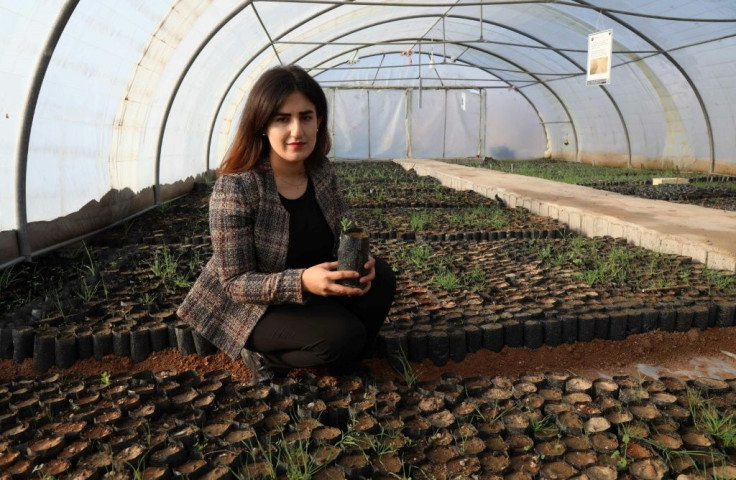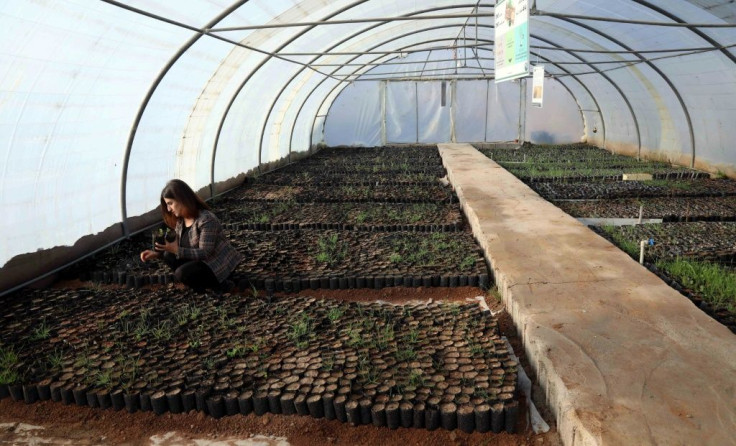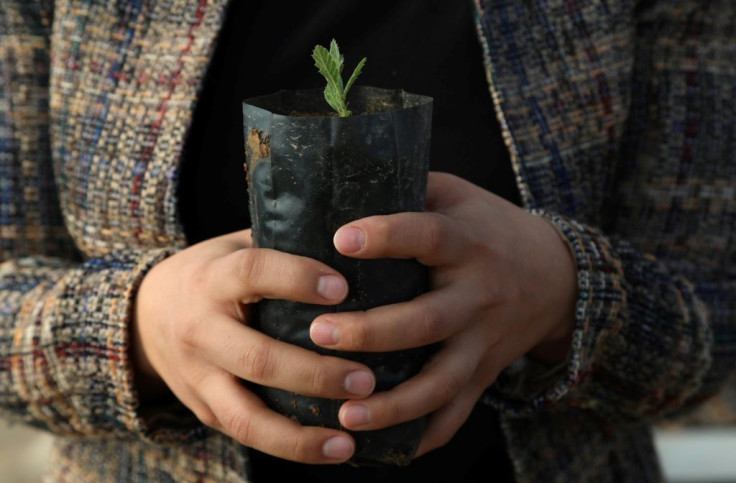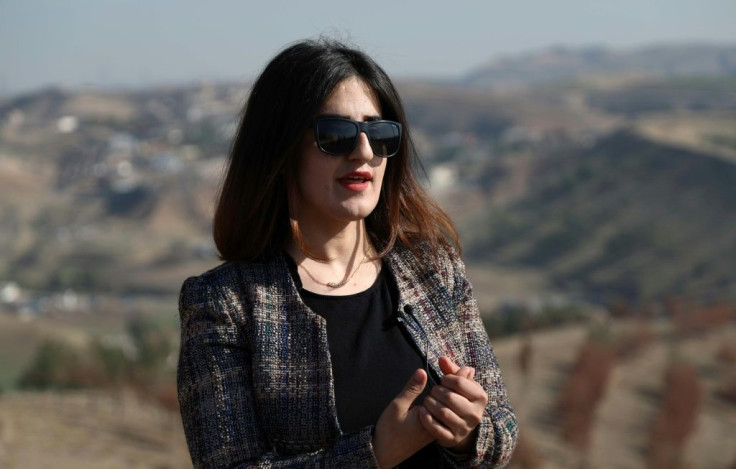Oak Trees Take Root In Iraqi Kurdistan To Help Climate
Delband Rawanduzi spoke softly to her oak seedlings, as if willing them to grow fast and repopulate forests in Iraqi Kurdistan depleted by war, illegal logging and fires.
Over the next five years, the 26-year-old aims to plant one million oaks -- resilient trees that can endure both the cold of northern Iraq and the dry spells of one of the world's hottest countries.
Her plan is taking root in her native Kurdistan.
In a pilot project late last year "we planted 2,000 oak trees. And in the upcoming autumn we will plant 80,000," said Rawanduzi, a hiker and rock climber.

She has mobilised visitors and shepherds who collect oak seeds from the mountains, which are then planted in two greenhouses donated by a private university in the Kurdish regional capital of Arbil.
Once the young seedlings grow into a saplings, they are re-planted in mountain areas selected by the Kurdish agriculture ministry.
And to ensure the oaks will thrive, Rawanduzi is winning over several sponsors who are asked to donate 1,000 Iraqi dinars (around 68 US cents) per tree.
"This project is not about planting trees only," said Rawanduzi.

"It's a response to climate change threats, as well as an effort to promote ecosystems and create a culture among people to contribute to a healthy climate," she told AFP.
Those threats are serious: some 2.2 million acres (nearly 900,000 hectares) of natural and manmade forests in the Kurdish region have been destroyed in the past two decades, according to estimates by Kurdish authorities.
This represents nearly half the forests of the region, with most of the damage occurring in the last five years.

The culprits include uncontrolled grazing, tree-cutting for firewood, unregulated urban development and bombardment.
While the Kurdish north has been spared much of the carnage seen across Iraq after the US-led invasion in 2003, it has been targeted by several cross-border Turkish operations against Kurdish militants.
A review of satellite images conducted by Dutch civil society organisation PAX International found that Turkey's military campaigns "can be directly linked" to the burning of nearly 50,000 acres of land in northern Iraq from May until September 2020.
"About half -- around 23,000 acres -- of the burned land is part of special protected areas with a rich biodiversity," it said.

Another 250,000 acres of land in the autonomous region were burned during the same period, PAX said, without identifying the perpetrators.
"Shelling and bombing resulted in bushfires and caused the displacement of thousands of people, destroying their livelihoods and damaging fragile ecosystems," it said.
According to the UN'S Food and Agriculture Organization (FAO) a mere two percent of Iraq's 437,000 square kilometres (168,700 square miles) is forested.
Most of that area lies in the Kurdish zone, where Rawanduzi hopes her project can make a change.
Young saplings have already been sponsored by Kurdish emigrants in Europe, Syrian refugees living in the Kurdish region, expatriates working in Arbil and local staff at schools and hospitals.
Intira Thepsittawiwat, a 50-year-old from the Czech Republic living in Arbil, is sponsoring 500 trees.
"It's a reliable, practical and inexpensive project. This is my small involvement and contribution to the nature of Iraqi Kurdistan," Thepsittawiwat told AFP.
For climate campaigners, tree planting is crucial but must be part of a wider effort to combat global warming.
Iraq recently ratified the 2015 Paris Climate Agreement, which aims to chart a path away from catastrophic warming, and has begun drafting plans to reduce carbon emissions.
Ahmed Mohammad, who headed the Kurdish region's environmental awareness department until 2015, told AFP there are many ways to reach that goal.
Developing public transport, eliminating the usage of single-use plastics and educating the population on climate issues top his list.
"People here like the open-air life, go picnicking on the weekends and have houses in the mountains, but still many of them don't realise the importance of nature and climate catastrophes," Mohammad said.
He is petitioning regional authorities to ban the use of plastic bottles in government offices.
Environmentalist Hawker Ali, 35, said the region must be ready for the long haul.
"It is not like Covid-19, which scientists can find a cure for," said Ali, who is helping Rawanduzi care for the oak seedlings in the Arbil greenhouses.
"With climate change, everyone must get involved in order to reduce the threats and the consequences."
© Copyright AFP 2024. All rights reserved.





















